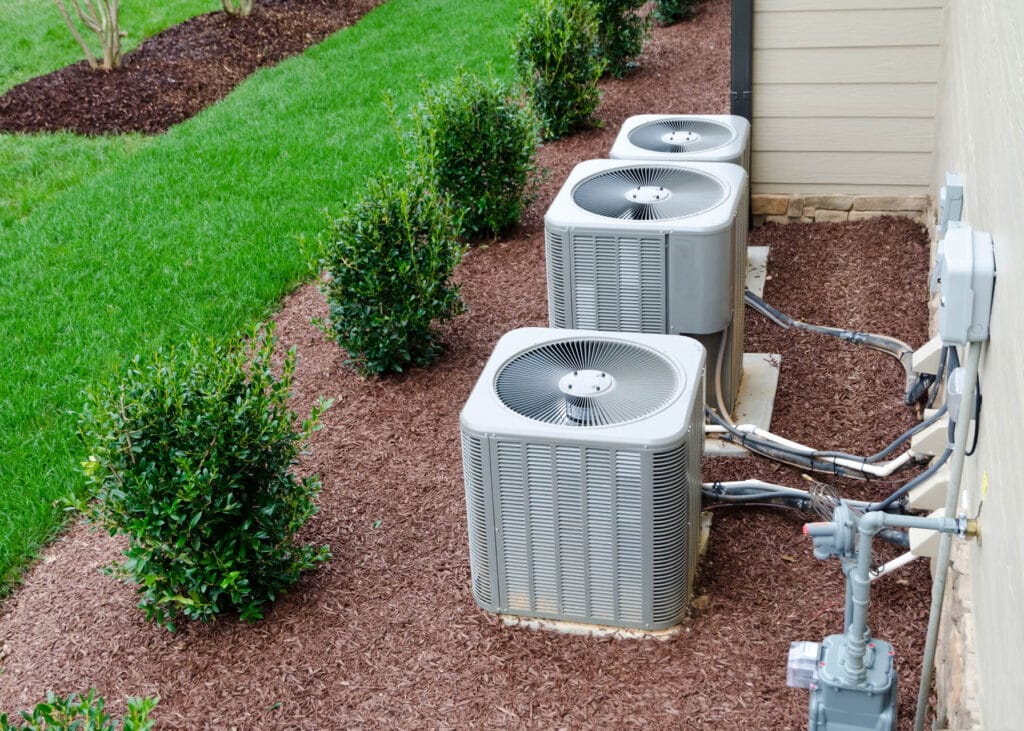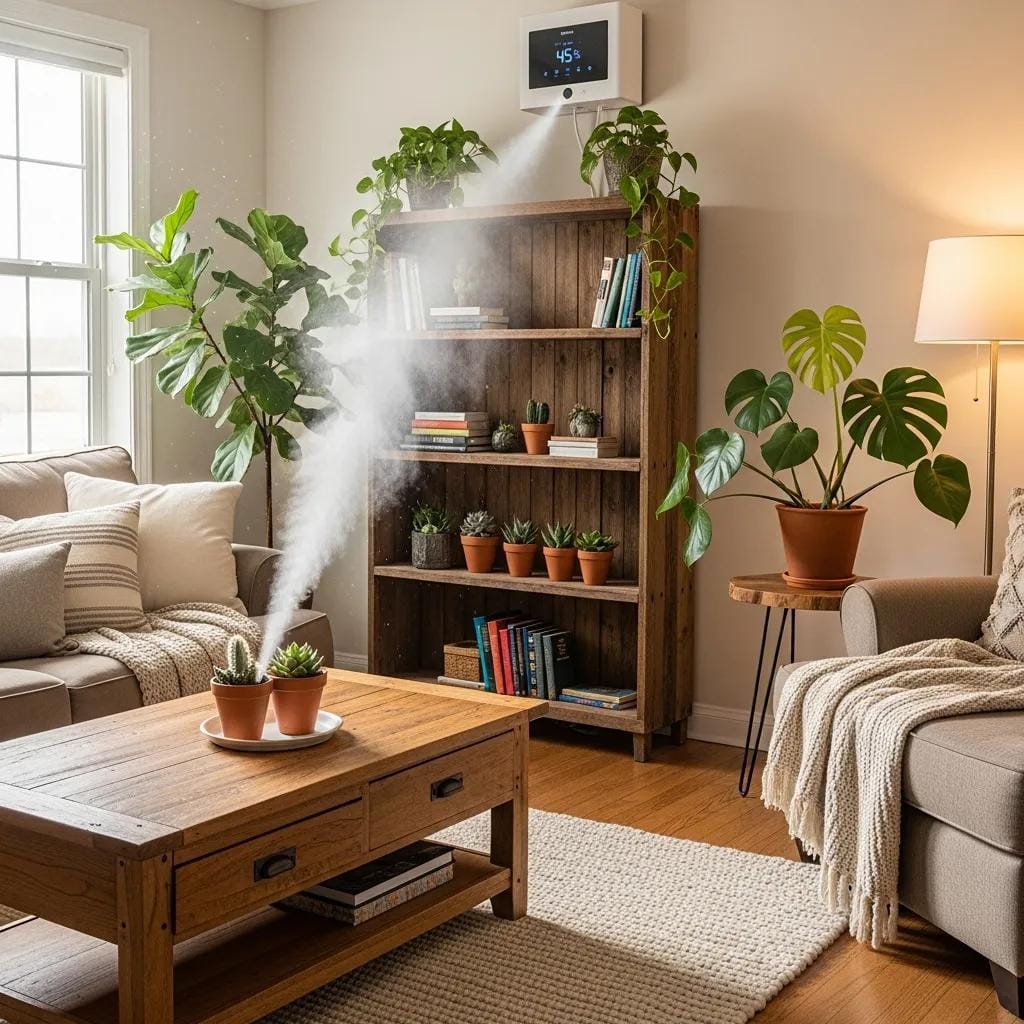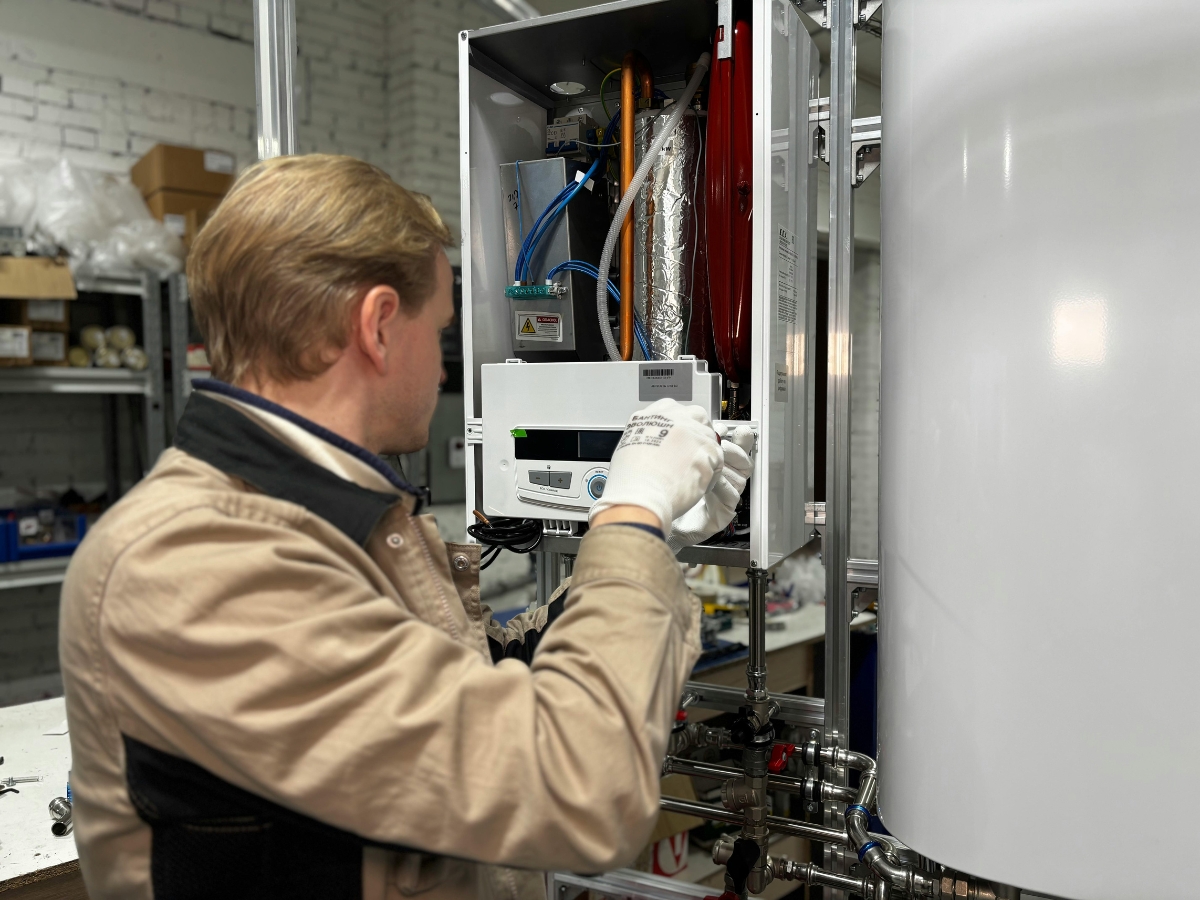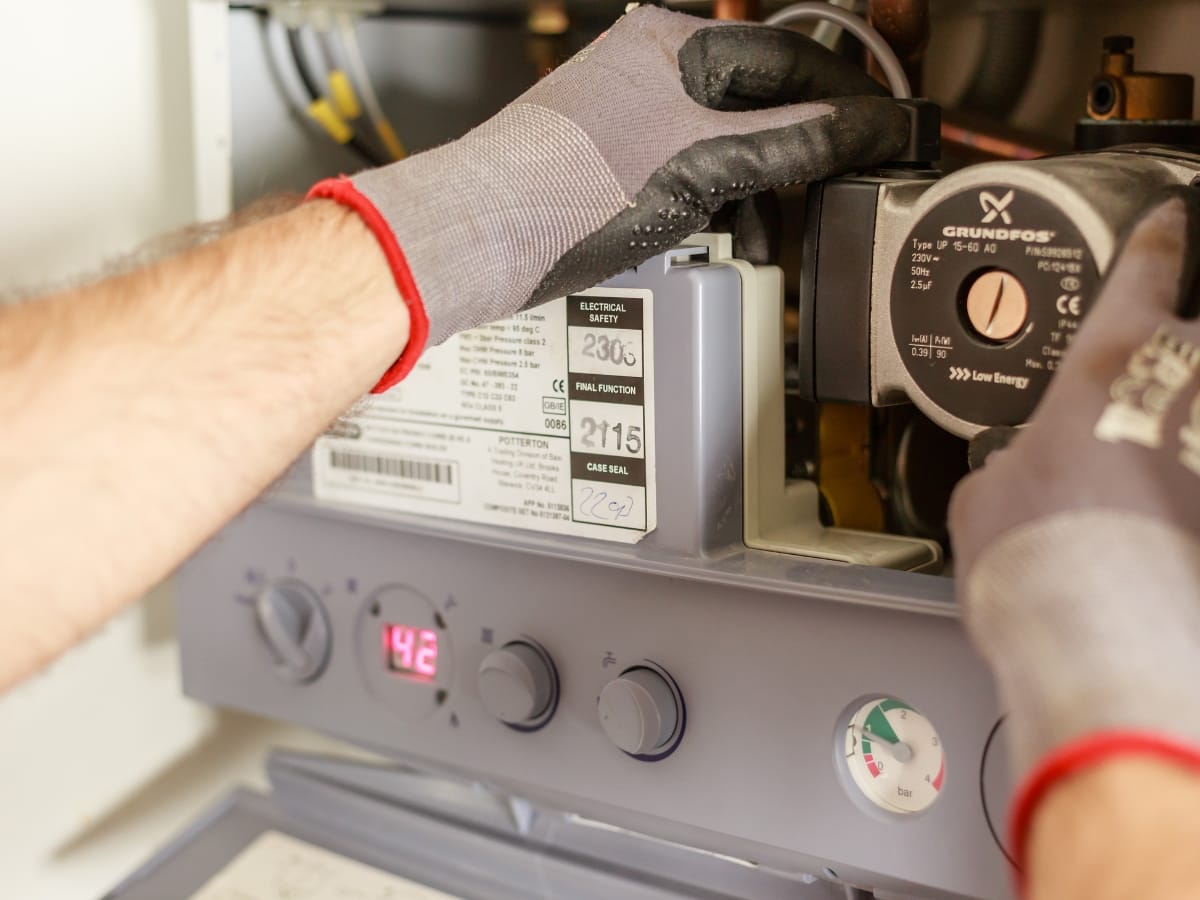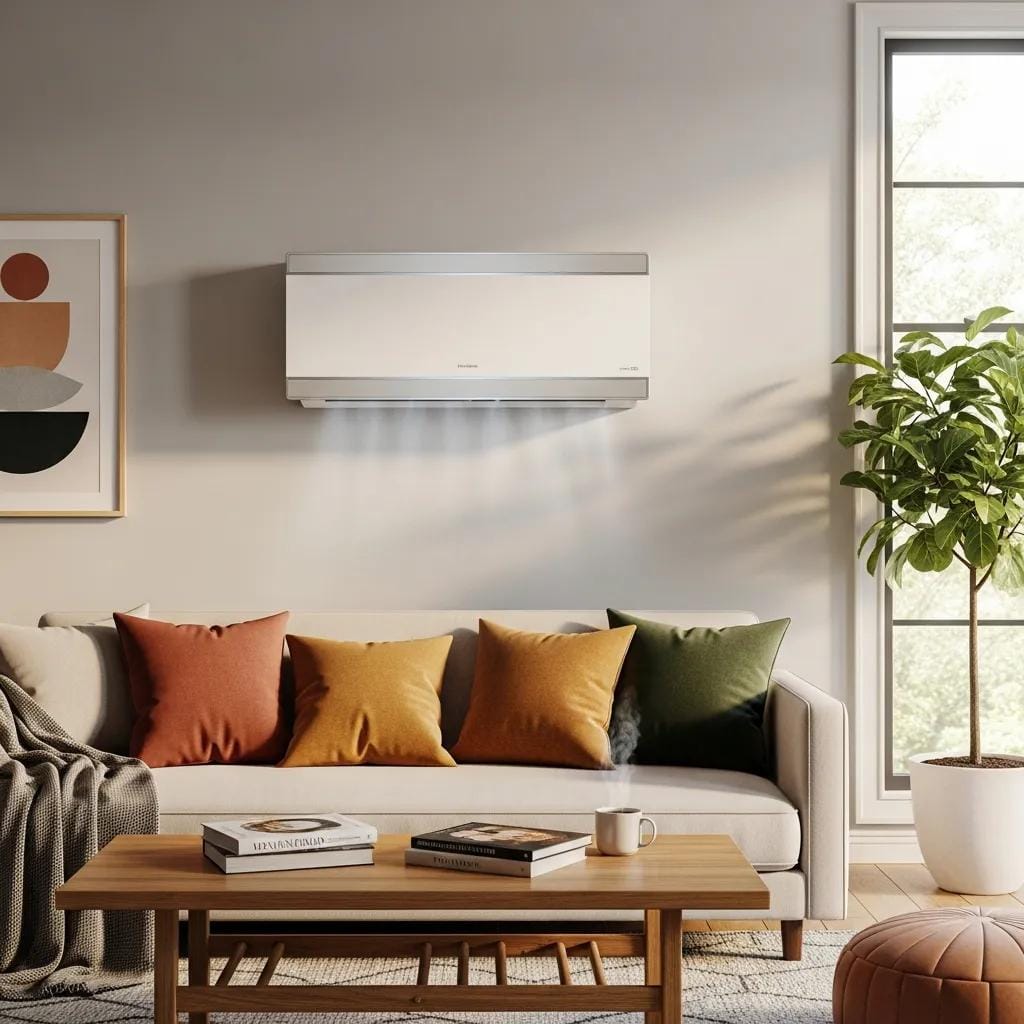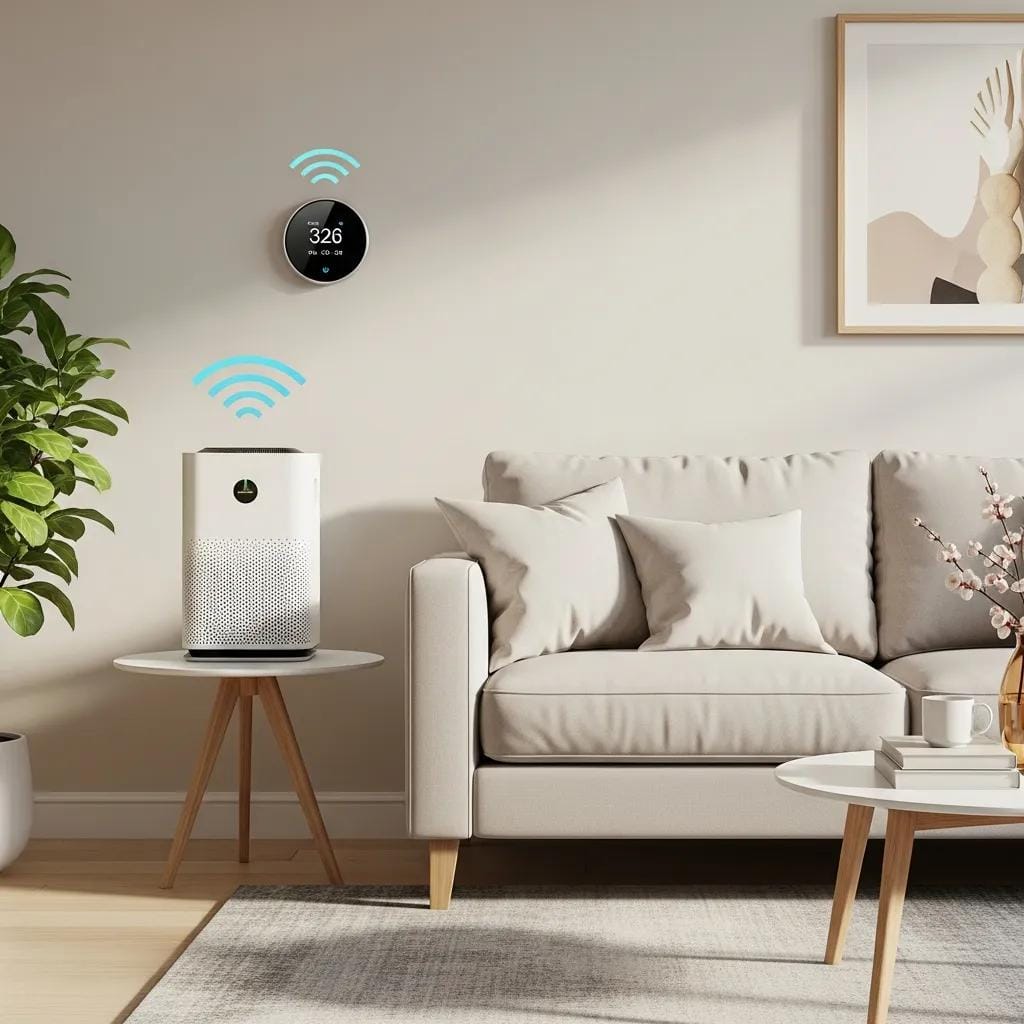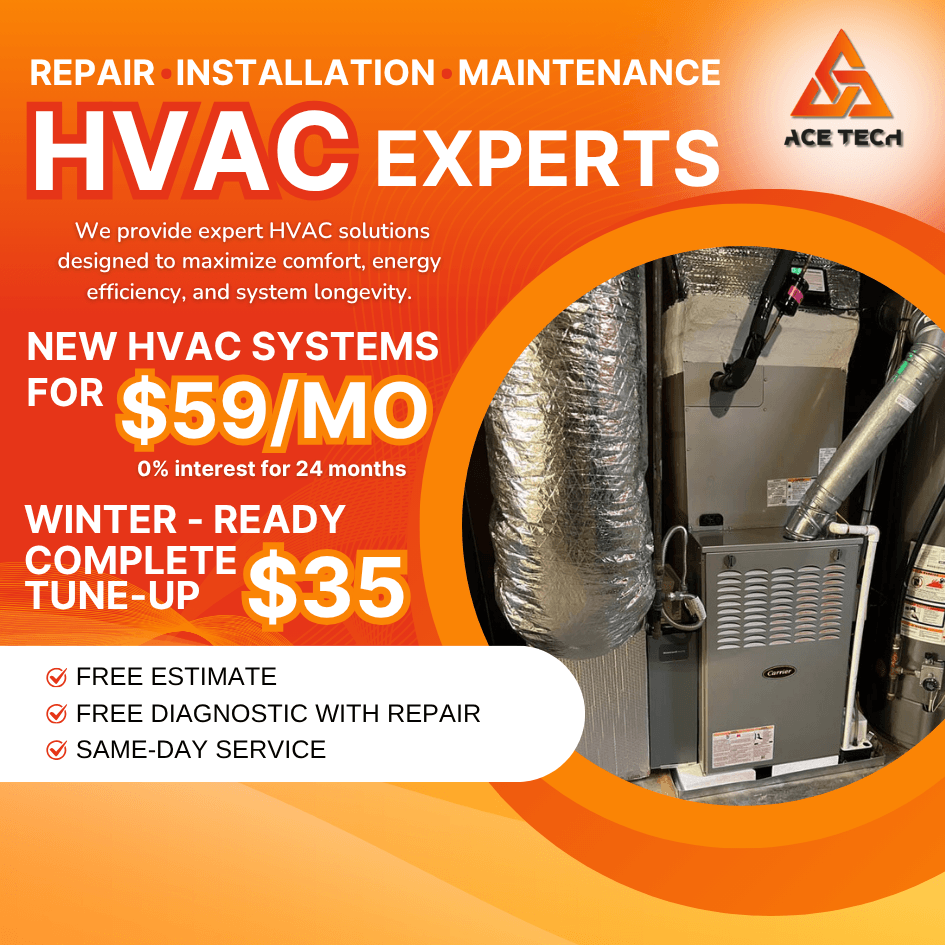Replacing your HVAC system is a significant investment—one that impacts your home’s comfort, energy efficiency, and long-term costs. Asking the right HVAC replacement questions before you buy ensures you choose a system that’s properly sized, suited to your local climate, and aligned with your budget and household needs. From understanding SEER ratings and warranty terms to evaluating installation expertise and potential rebates, being informed helps you avoid overspending, undersizing, or ending up with a system that doesn’t perform as expected. In this guide, we’ll cover the essential questions to ask HVAC contractors before making a decision, so you can invest with confidence and enjoy reliable comfort for years to come.
HVAC Replacement Questions: Costs, Timing, and What to Expect
What Size HVACSystem is Right for My Metro Atlanta Residence?
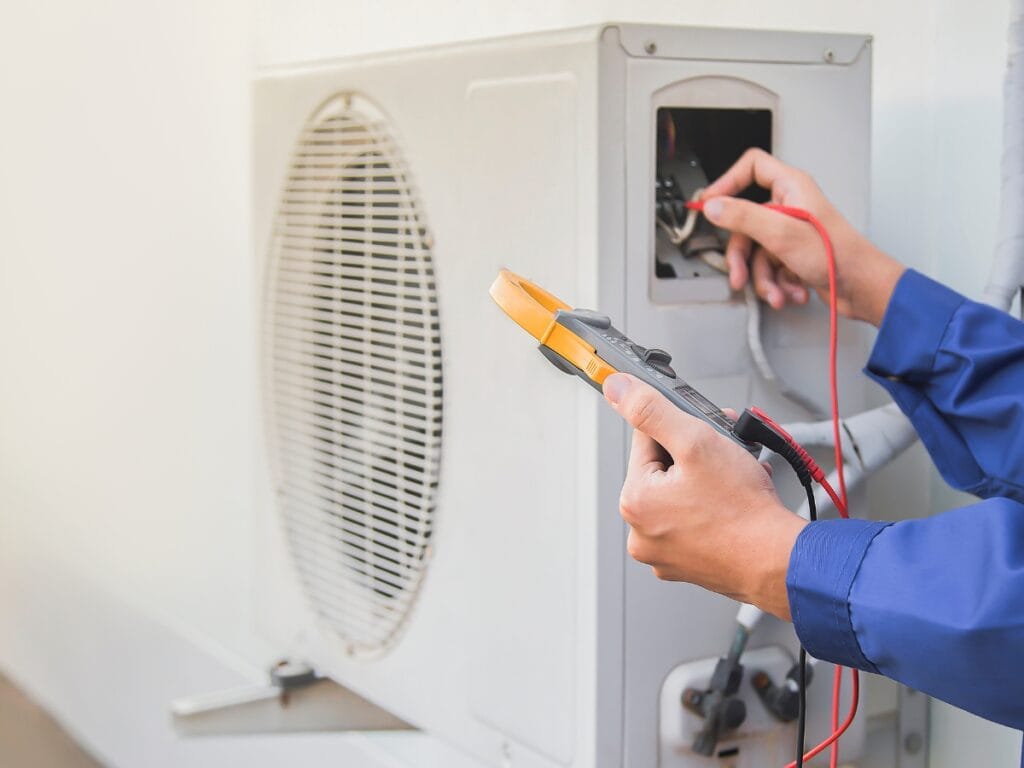
Picking the correct size starts with matching equipment capacity to your home’s heat gain in summer and heat loss in winter. In practical terms, that means looking at square footage, insulation, window area and orientation, shading, and how airtight the house is. An undersized unit runs nonstop and still misses the setpoint on the hottest afternoons. An oversized unit short cycles, which wastes energy, leaves rooms muggy, and wears parts faster. If you are sorting through HVAC replacement questions, begin with sizing. Getting capacity right is the foundation for comfort, efficiency, and a system that lasts.
How Do Home Dimensions And Layout Influence Sizing?
The same square footage can require very different capacities depending on layout. Open plans move air easily but expose more volume to condition, especially with tall ceilings. Compartmentalized floor plans have more doors and walls, which affects airflow and room-to-room balance. Ceiling height, window direction, and glass type matter too. A 2,000 square foot ranch with 10 foot ceilings and west-facing glass can need more cooling than a two-story home of the same size with standard ceilings and shaded windows. Construction details also count. Tight, well insulated homes hold conditioned air; older homes with leaky envelopes need more capacity to overcome infiltration. A careful review of layout and construction helps avoid hot and cold spots after the install.
Why Is An Accurate HVAC Load Calculation Essential?
A load calculation is the methodical way to determine how much heating and cooling your home actually needs. It tallies heat transfer through walls, roof, floors, windows, and doors, accounts for air leakage, and factors in internal loads from people and appliances. With that data, your contractor can select equipment that hits the sweet spot for capacity and pair it with proper airflow and duct sizing. Skipping this step invites problems. Oversizing leads to short cycles, higher humidity, and noise. Undersizing forces long run times and still may not meet setpoints on extreme days. A documented load calculation supports balanced airflow, steadier temperatures, and lower utility costs over time. It also gives you a clear baseline when comparing models, efficiencies, and staging options.
Can My Existing Ductwork Accommodate A New HVAC System, Or Does It Need An Upgrade?
Ducts are part of the system, not an accessory. If they are undersized, leaky, or poorly laid out, your new equipment will not perform to spec. A proper assessment checks static pressure, supply and return sizes, leakage rates, and insulation levels. Pinched runs, long unsupported flex, and missing returns can starve airflow and raise energy use. Leaky joints can waste a noticeable share of conditioned air into attics or crawl spaces. The solution may be as simple as sealing and adding a return, or as involved as resizing a trunk or converting long flex runs to rigid with short flex takeoffs. Addressing duct issues before or during replacement protects your investment and helps the new system deliver the comfort and efficiency the load calculation predicted.
What Else Should I Ask Before Replacing My System?
Round out your HVAC replacement questions with a few practical checkpoints. Confirm the target airflow and external static pressure for the chosen model. Ask how the thermostat, filtration, and dehumidification strategy support comfort in Atlanta’s humid summers. Review placement for outdoor units to ensure clear airflow and easy service access. Finally, make sure your proposal ties equipment size to the documented load calculation and outlines any duct corrections. With those pieces in place, your new system is set up to run efficiently, manage humidity, and keep temperatures even across the home.
Which HVACSystem Type is Ideal for My Atlanta Home: Furnace, Air Conditioner, or HeatPump?
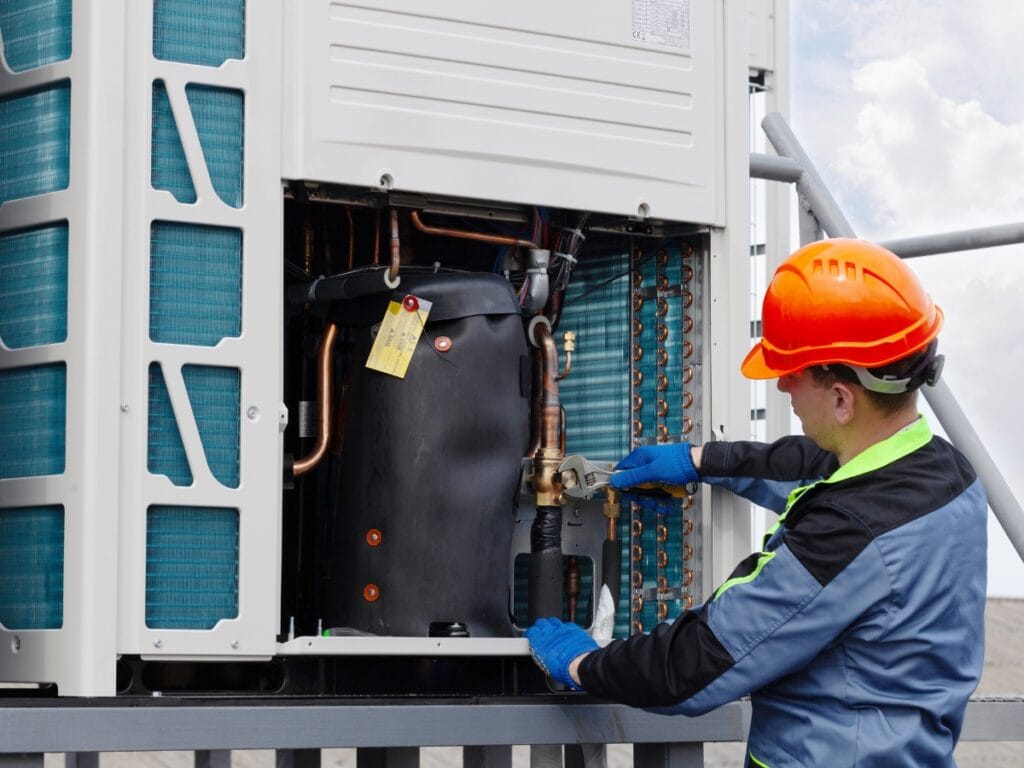
The choice between a furnace, a separate air conditioner and furnace, or a heatpump depends on our region’s climate patterns, your desired level of operating efficiency, and your installation preferences. Furnaces are renowned for their robust winter heating capabilities, while split air conditioningsystems excel at providing targeted cooling. Heat pumps, on the other hand, offer both heating and cooling from a single, highly efficient unit. Carefully evaluating the operational principles and benefits of each system type will help you align your comfort needs with your energy cost goals.
What Are the Advantages and Disadvantages of Furnaces, Air Conditioners, and Heat Pumps?
Here’s a breakdown of the primary system types, their key characteristics, and the benefits they offer homeowners:
| System Type | Key Characteristic | Homeowner Benefit |
|---|---|---|
| Gas Furnace | High AFUE combustion efficiency | Delivers powerful, consistent heat during the coldest months and reliable operation when temperatures plummet. |
| Split Air Conditioner | Superior SEER cooling performance | Provides precise temperature control and effective humidity removal during warmer periods. |
| Air-Source Heat Pump | Reversible refrigeration cycle | Offers efficient heating and cooling from one unit, simplifying installation and reducing the physical footprint. |
How Does Metro Atlanta’s Climate Impact the Best HVACSystem Choice?
Given Metro Atlanta’s hot, humid summers and generally mild winters, the system‘s cooling performance and dehumidification capabilities are often the most critical factors in its selection. Heat pumps provide excellent cooling efficiency, with SEER ratings typically above 16, and can offer moderate heating down to near-freezing temperatures. For those occasional colder snaps, a high-efficiencyfurnace can provide supplemental heat. Analyzing the typical seasonal temperature ranges will help ensure your chosen solution delivers year-round comfort without being unnecessarily oversized for infrequent cold spells.
Making a climate-informed equipment choice optimizes energy usage and ensures consistent comfort through Atlanta’s diverse seasonal conditions.
Should I Consider Smart Thermostats and Zoned Systems for My New HVACInstallation?
Integrating smart thermostats and zoning capabilities can significantly enhance temperature management, minimize energy waste, and adapt to your household’s varying occupancy and activity levels. Smart thermostats allow you to adjust settings remotely, monitor system performance, and learn your usage habits to optimize operation. Zoned systems utilize dampers within your ductwork to create distinct temperature control areas, enabling you to set different temperatures in various parts of your home, which is particularly beneficial for multi-story houses and reduces the overall workload on your central equipment.
Embracing smart controls and zoning empowers precise climate management, leading to tangible energy savings and a more comfortable living environment.
What EnergyEfficiency Ratings Should I Prioritize When Selecting a New HVACSystem?
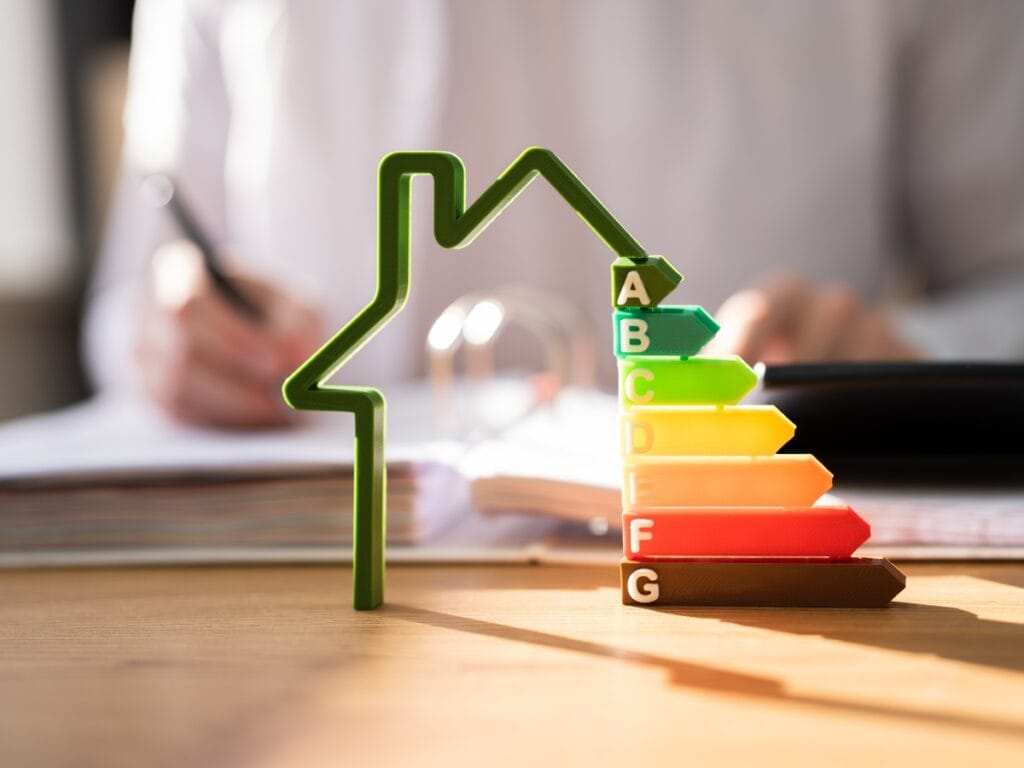
When you compare equipment, start with the efficiency labels. SEER measures cooling efficiency for air conditioners, AFUE measures how effectively a furnace turns fuel into heat, and HSPF measures a heat pump’s heating performance. Higher numbers mean the system delivers more comfort per unit of energy, which usually lowers monthly bills and reduces your home’s environmental footprint. If you are sorting through HVAC replacement questions, these metrics are the quickest way to narrow choices before you dig into features and pricing.
How Do SEER, AFUE, And HSPF Affect Monthly Utility Bills?
Each rating moves the needle in a different season. Upgrading from an older 13 SEER air conditioner to a modern high-efficiency model can trim summer electricity costs by as much as 25 percent, depending on usage and duct conditions. A furnace with a higher AFUE converts more of each therm into usable heat, often cutting winter fuel spending by 5 to 20 percent. Heat pumps with stronger HSPF scores typically reduce cold-weather energy use by 15 to 30 percent. Real-world savings vary with thermostat habits, insulation, and duct leakage, yet the direction is consistent. Better ratings make it easier to control costs without sacrificing comfort.
What Constitutes A Good SEER Rating For Georgia Homes?
For Georgia’s long cooling season, a SEER rating of 16 or higher strikes a solid balance between upfront price and lifetime operating cost. That level often delivers meaningful savings over legacy units while keeping equipment costs manageable. If your home has large west-facing windows, high ceilings, or heavy sun exposure, stepping up to an even higher SEER can improve comfort on the hottest afternoons. Pair any choice with a proper load calculation and duct check so the system you pick can actually achieve the efficiency on its label.
Are There Financial Incentives For Energy-Efficient Systems?
Several programs can offset part of the investment. Many heat pumps and high-efficiency central systems qualify for federal tax credits worth up to 30 percent of project cost, capped at $2,000 for certain heat pump installations. Local utilities often offer rebates for equipment that meets specific SEER, EER, AFUE, or HSPF thresholds. Some manufacturers and community programs provide low-interest financing that spreads costs over time. Stacking a rebate with a tax credit and smart financing can shorten payback and keep cash flow predictable.
How Should I Use These Ratings To Compare Two Systems?
Start with your annual energy spend, then estimate savings from each upgrade path. For example, if cooling accounts for a large share of your bill, prioritize a higher SEER and a variable-speed or two-stage compressor that moderates humidity. If winter gas usage is the driver, weigh a higher-AFUE furnace against a cold-climate heat pump and consider utility rates for electricity and gas. Ask for a proposal that links equipment size to a documented load calculation and specifies expected airflow. That way you are comparing complete systems, not just nameplate numbers.
What Else Matters Beyond The Label?
Controls and installation quality make a big difference. A smart thermostat, properly sized returns, sealed and insulated ducts, and correct refrigerant charge help the equipment hit its published efficiency. Maintenance matters too. Clean filters, clear outdoor coils, and verified airflow keep performance from drifting. Put these checkpoints alongside the efficiency labels, and your shortlist will be both practical and cost-effective.
By focusing on SEER, AFUE, and HSPF, confirming the design with a load calculation, and leveraging available incentives, you can answer the most common HVAC replacement questions with confidence and choose a system that performs well in Metro Atlanta’s climate for years to come.
What Questions Should I Pose to My HVAC Contractor Before Commencing a Replacement?
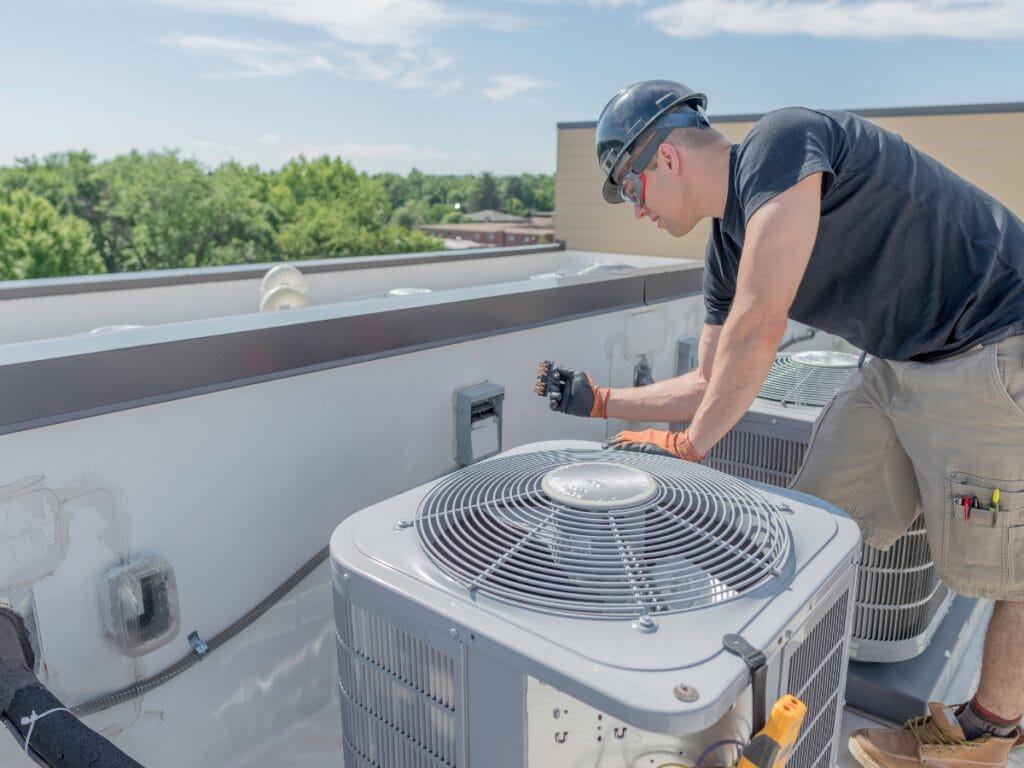
Thoroughly vetting your contractor is essential to ensure they possess the necessary credentials, follow transparent installation procedures, and offer robust warranties that protect your investment. Inquiring about their licensing, the specifics of their installation process, warranty details, and available maintenance plans will confirm their reliability and commitment to quality workmanship. A highly qualified contractor can transform a complex systemreplacement into a smooth, efficient upgrade that perfectly meets your comfort and efficiency objectives.
Is Your Company Licensed, Insured, and Certified for HVACInstallation in Georgia?
Reputable contractors should hold a current Georgia HVAC license, carry comprehensive liability and workers’ compensation insurance, and employ technicians who are NATE-certified. These credentials provide assurance by demonstrating compliance with state regulations, ensuring safety on your property, and verifying technical proficiency.
Confirming these qualifications establishes a foundation for a compliant, professional installation that safeguards your home and your investment.
What Does the Installation Process Entail, and What is the Estimated Timeline?
A typical installation process involves several key stages:
- A detailed on-site assessment to evaluate load requirements, ductwork condition, and electrical needs.
- Careful delivery and staging of the new equipment.
- Any necessary duct modifications, insulation sealing, and system connections.
- Precise refrigerant charging, control system calibration, and airflow balancing.
- Comprehensive performance testing and a thorough homeowner orientation.
For most full-system replacements in the Metro Atlanta area, the process is generally completed within two to four days, depending on the complexity of the installation and any site preparation required.
What Warranty Coverage Do You Provide for Both the Equipment and the Installation Labor?
Homeowners should look for comprehensive warranty protection, including:
- The manufacturer’s parts warranty (often extending up to 10 years for premium brands).
- A labor warranty (typically ranging from 1 to 2 years, covering the installation workmanship).
- Optional extended service contracts for enhanced long-term peace of mind.
A robust warranty package is crucial for safeguarding your equipment’s performance and minimizing the risk of unexpected repair expenses.
Do You Offer Maintenance Plans to Help Preserve My New System‘s Performance?
Our regular maintenance plans typically include biannual system tune-ups, filter checks, safety inspections, and priority scheduling for service calls. These services are designed to maximize your system‘s lifespan, ensure warranty compliance, and prevent efficiency degradation over time. Enrolling in a maintenance plan is the best way to keep your system running optimally and extend its operational life.
What is the Expected Cost for Replacing My HVACSystem in Metro Atlanta?
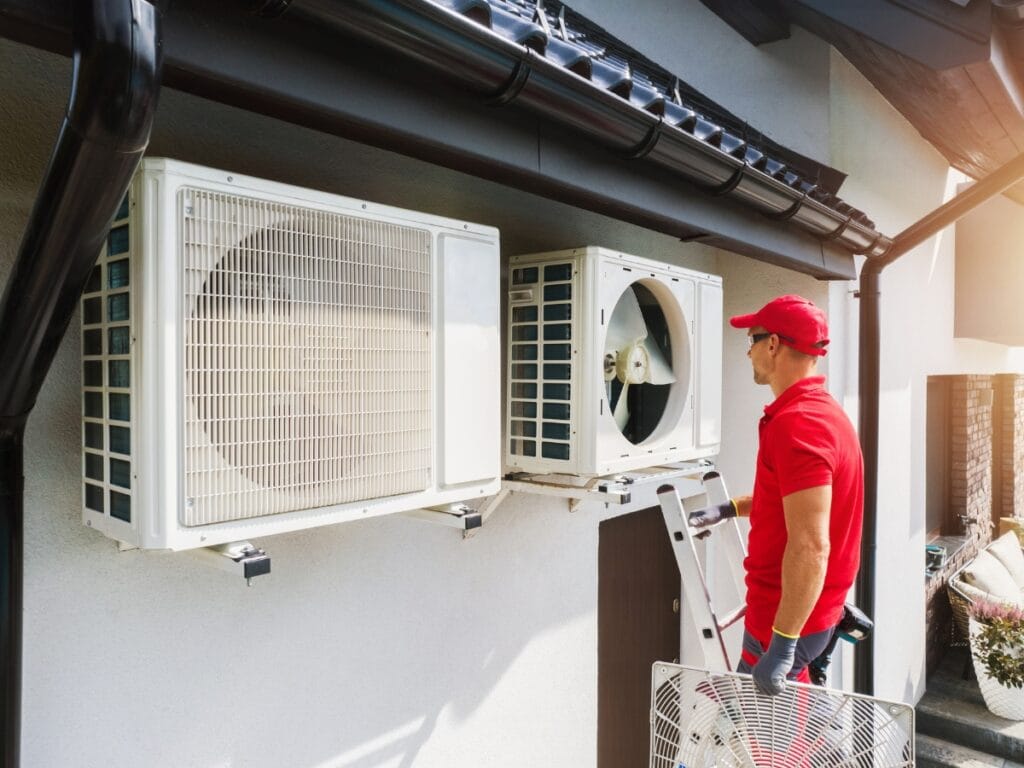
Total project price depends on your home, your equipment choices, and install conditions. For a complete split system replacement, many Metro Atlanta homeowners see totals in the $11,000 to $14,000 range. That ballpark typically covers new indoor and outdoor units, basic controls, standard permits, and startup. Variables like higher efficiency ratings, new duct sections, or electrical upgrades can move the number up. Getting a clear, line-item estimate helps you set a realistic budget and compare options on value rather than sticker price alone.
What Factors Influence The Total Cost Of HVAC Replacement, Including Ductwork And Installation?
Capacity and efficiency drive most of the equipment cost. Larger homes or spaces with high ceilings often require higher-capacity units. Stepping up to a higher SEER or HSPF model raises the upfront price but can lower monthly bills, which matters in Georgia’s long cooling season. Ductwork is another big lever. If ducts are undersized, leaky, or damaged, airflow suffers and efficiency drops. Correcting layout issues, sealing joints, or replacing sections adds cost but protects your investment. Site conditions also matter. Tight attic access, slab homes without existing returns, or long refrigerant runs add labor time. Finally, brand features and controls, from variable-speed blowers to communicating thermostats, affect both comfort and price.
How Can I Leverage Financing And Rebates To Reduce My HVAC Replacement Expenses?
Stacking incentives can trim thousands from the net cost. Look for federal tax credits on qualifying heat pumps and high-efficiency systems. Many local utilities offer rebates tied to specific SEER, EER, AFUE, or HSPF thresholds. Some manufacturers and lenders provide low-interest or zero-interest promotional financing that smooths cash flow. A common approach is to combine a utility rebate with a federal credit, then finance the remainder with a fixed monthly payment that is partly offset by lower energy bills. Ask installers to quote your project both before and after incentives so you can see the true out-of-pocket difference.
What Should A Written HVAC Replacement Quote Include?
A solid proposal does more than list a model number. It should show the results of a load calculation, the selected system capacity, and the efficiency ratings for cooling and heating. It needs to outline scope of work, including any duct modifications, new returns, drain lines, or electrical changes. You should see details on the thermostat, surge protection, and condensate safety devices, plus permits and haul-away of old equipment. Warranties belong in writing too. Note the parts warranty from the manufacturer, the labor warranty from the installer, and any maintenance requirements to keep coverage valid. A clear schedule and payment terms round it out so there are no surprises on install day.
How Do I Choose Between Repair And Replacement?
Consider age, past repairs, comfort, and energy use. If your system is near the end of its expected life, needs a major component like a compressor or heat exchanger, and struggles with humidity or hot spots, replacement often makes financial sense. If the unit is newer and the issue is minor, a targeted repair may be the smarter move. To compare, ask for a repair-versus-replace analysis that shows estimated remaining life, projected energy savings with a new unit, and the payback period. This side-by-side view turns a tough call into a data-driven decision.
When you approach bids with these points in mind, you will be ready to tackle common HVAC replacement questions, weigh cost against comfort, and capture the best long-term value for your Metro Atlanta home.
How Can a New HVACSystem Enhance My Home’s Indoor Air Quality and Overall Comfort?
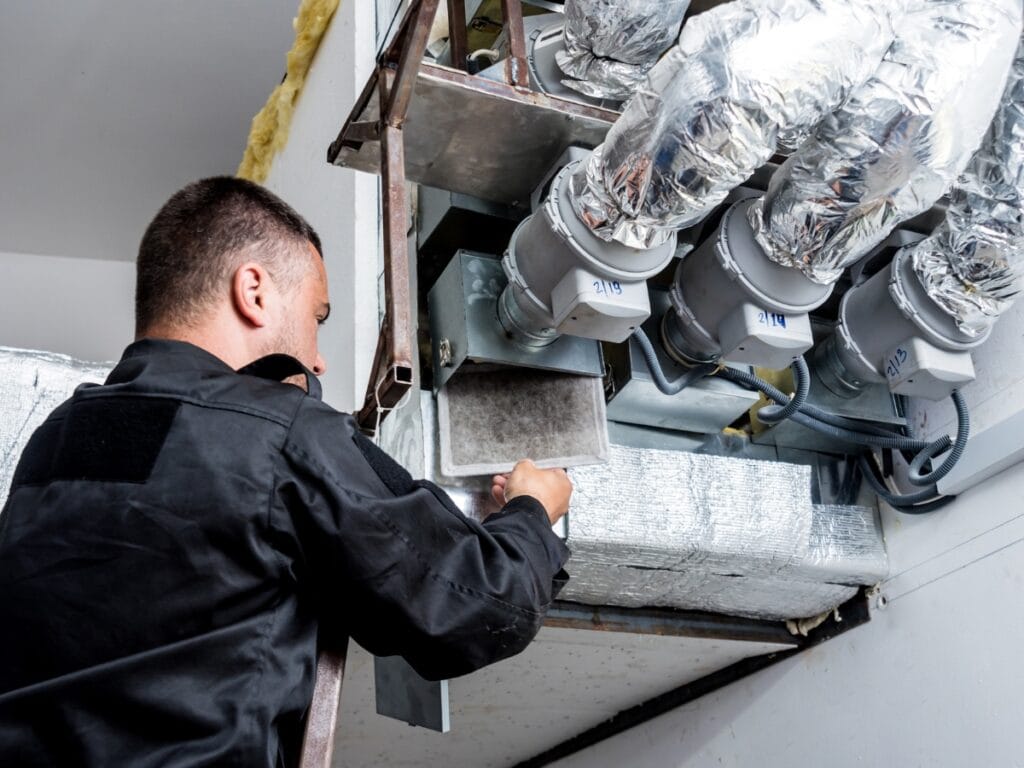
Modern HVAC upgrades incorporate advanced filtration technologies, sophisticated humidity control, and optimized airflow management to dramatically improve your indoor air quality (IAQ) and ensure consistent, comfortable temperatures throughout your home. High-MERV filters effectively capture airborne allergens, UV-C lights neutralize harmful microorganisms, and specialized dehumidification features combat excess moisture. By integrating these IAQ solutions with your new equipment, you can create a healthier and more comfortable living environment.
What Indoor Air Quality Solutions Should I Consider Integrating with My New HVACSystem?
Key enhancements for indoor air quality include:
- MERV-13 or higher pleated filters designed for superior fine-particle capture.
- UV-C germicidal lights engineered to inhibit the growth of mold and bacteria.
- Whole-house dehumidifiers that maintain optimal humidity levels below 50%.
- Electronic air cleaners that provide continuous removal of airborne contaminants.
Combining these advanced components with a new HVACsystem promotes cleaner air and contributes to better occupant health and well-being.
What is the Impact of Proper HVACInstallation on Home Comfort and Air Quality?
Correct installation is fundamental to achieving optimal comfort and air quality. It ensures that your ductwork is properly sealed, airflow is balanced, and refrigerant levels are precisely calibrated—all critical for maintaining uniform temperatures and effective humidity control. Eliminating leaks in your ductsystem prevents the intrusion of outdoor pollutants, and accurately calibrated controls ensure your system maintains setpoints without excessive cycling. High-quality workmanship directly links the system‘s design specifications to your end-user comfort and the overall quality of your indoor environment.
When is it More Sensible to Repair Versus Replace My HVACSystem?
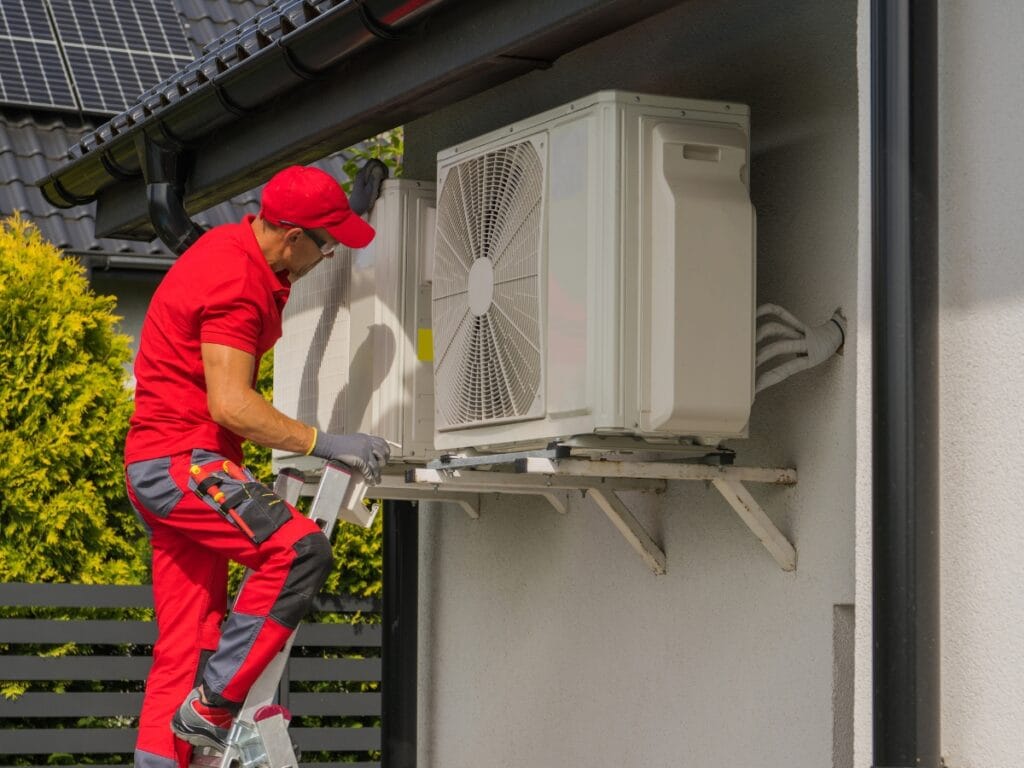
The decision between repairing an existing system and investing in a new one typically hinges on the system‘s age, the frequency of repairs needed, and a thorough cost-benefit analysis. Older units, generally those exceeding 12–15 years, often experience declining efficiency and require increasingly frequent service, making replacement the more economical choice over the long term. A clear decision-making framework helps homeowners determine whether continued repairs offer diminishing returns compared to the benefits of modern, more efficient technology.
What Are the Key Indicators That Suggest It’s Time to Replace My HVACSystem?
Common signs that point towards replacement include:
- The system is over 15 years old and still contains original components.
- You’re experiencing an increasing number of breakdowns and repair calls.
- Your utility bills are steadily rising, even with regular maintenance.
- You notice inconsistent temperatures, poor humidity control, or unusual operational noises.
How Do Repair Costs Compare to the Investment in a New System Over Time?
The following table offers a comparison of repair costs versus the long-term value of a replacementsystem:
| Scenario | Average Repair Cost | Replacement Cost Range | Long-Term Value Proposition |
|---|---|---|---|
| Major compressor repair | $1,200 – $1,800 | $11,000 – $14,000 | Replacement guarantees full system efficiency and reliability. |
| Multiple minor repairs | $100 – $300 per visit | Accumulated repair costs can quickly exceed the savings from a new, efficient system. |
How Do System Longevity and Warranty Coverage Influence the Timing of a Replacement?
While extended warranties and reliable equipment lines can sometimes add a few years to a system‘s useful life, warranty coverage typically diminishes significantly after the first 5–10 years. Aligning your replacement timing with the end of your equipment’s effective lifespan and the expiration of its warranty ensures you maximize manufacturer support, minimize unexpected expenses, and safeguard your home’s comfort.
Upgrading your HVACsystem before a major failure occurs is the most effective way to maintain optimal indoor air quality, ensure consistent temperatures, and take full advantage of available warranty and rebate opportunities.
A thoughtfully planned HVACsystem upgrade, guided by these critical questions, leads to superior system performance, substantial energy savings, and lasting home comfort. Metro Atlanta homeowners who choose to partner with licensed, insured, and locally experienced experts benefit from precisely tailored system sizing, meticulous installations, and proactive maintenance programs.
Ensuring you select the right equipment type, the most appropriate efficiency rating, and confirm your contractor’s credentials transforms a potentially complex decision into a confident and rewarding investment. Acetechga’s proven track record, comprehensive warranties, and unwavering dedication to customer satisfaction make us the premier choice for HVACreplacement services throughout Metro Atlanta.
Conclusion
Asking the right questions before investing in a new HVAC system ensures you select a solution that meets your home’s needs, budget, and efficiency goals. At Ace Tech Heating & Cooling, we guide you through this process with transparency, expertise, and a commitment to your long-term comfort. Ready to make an informed decision? Call (404) 369-9100 or request a free quote online today—and let our certified technicians help you choose, install, and maintain a system you can rely on for years to come.

